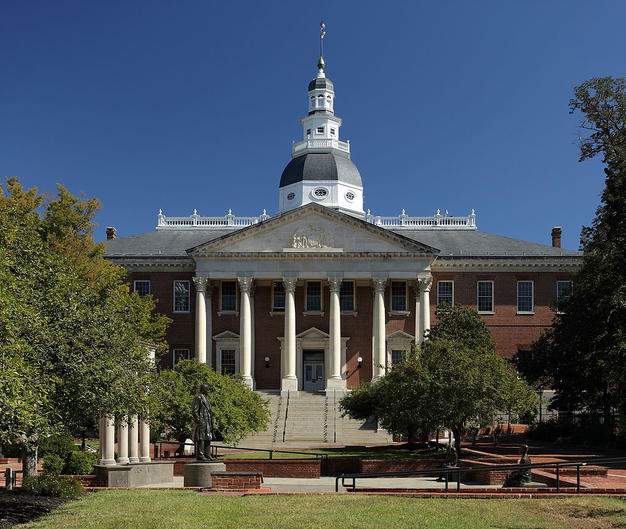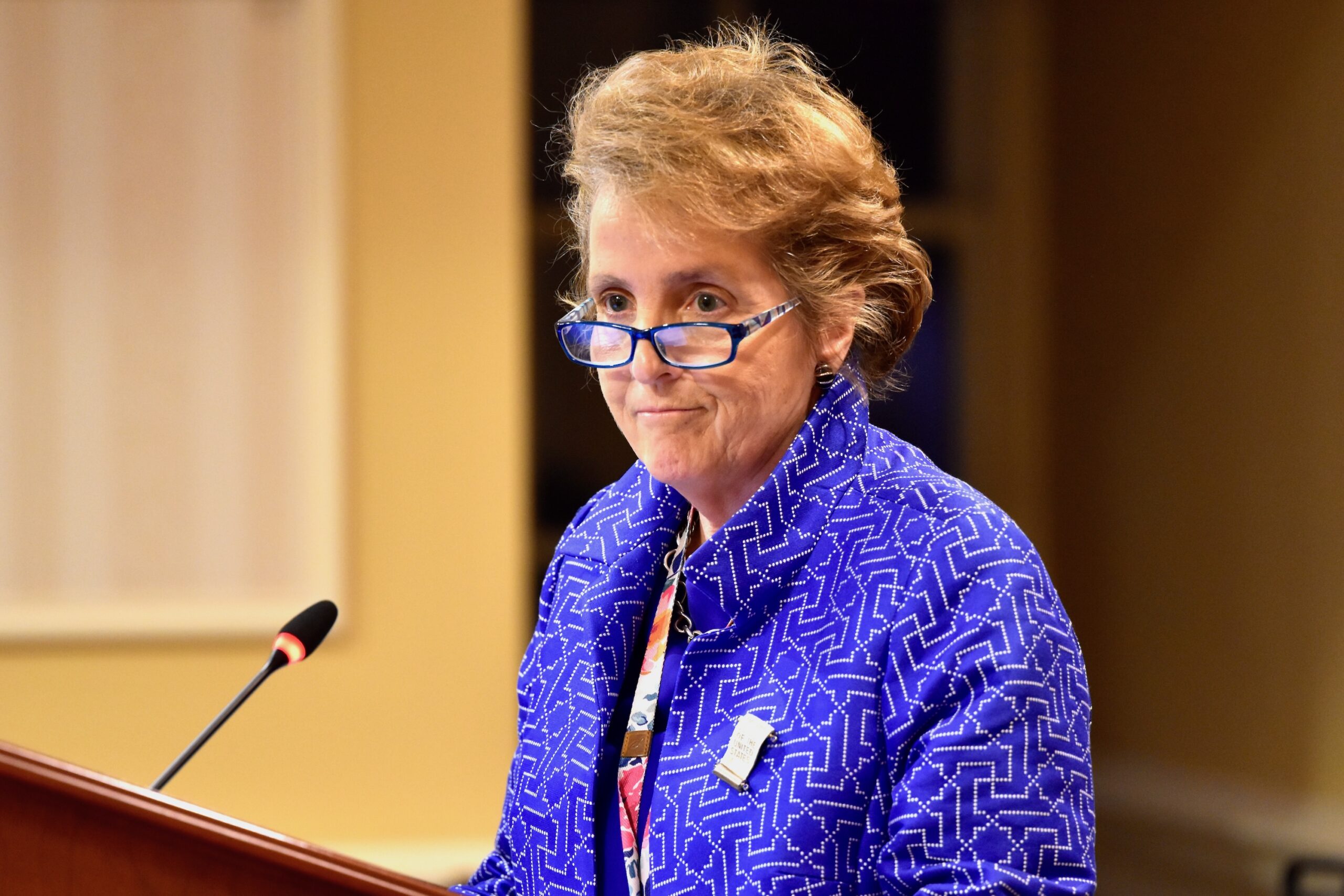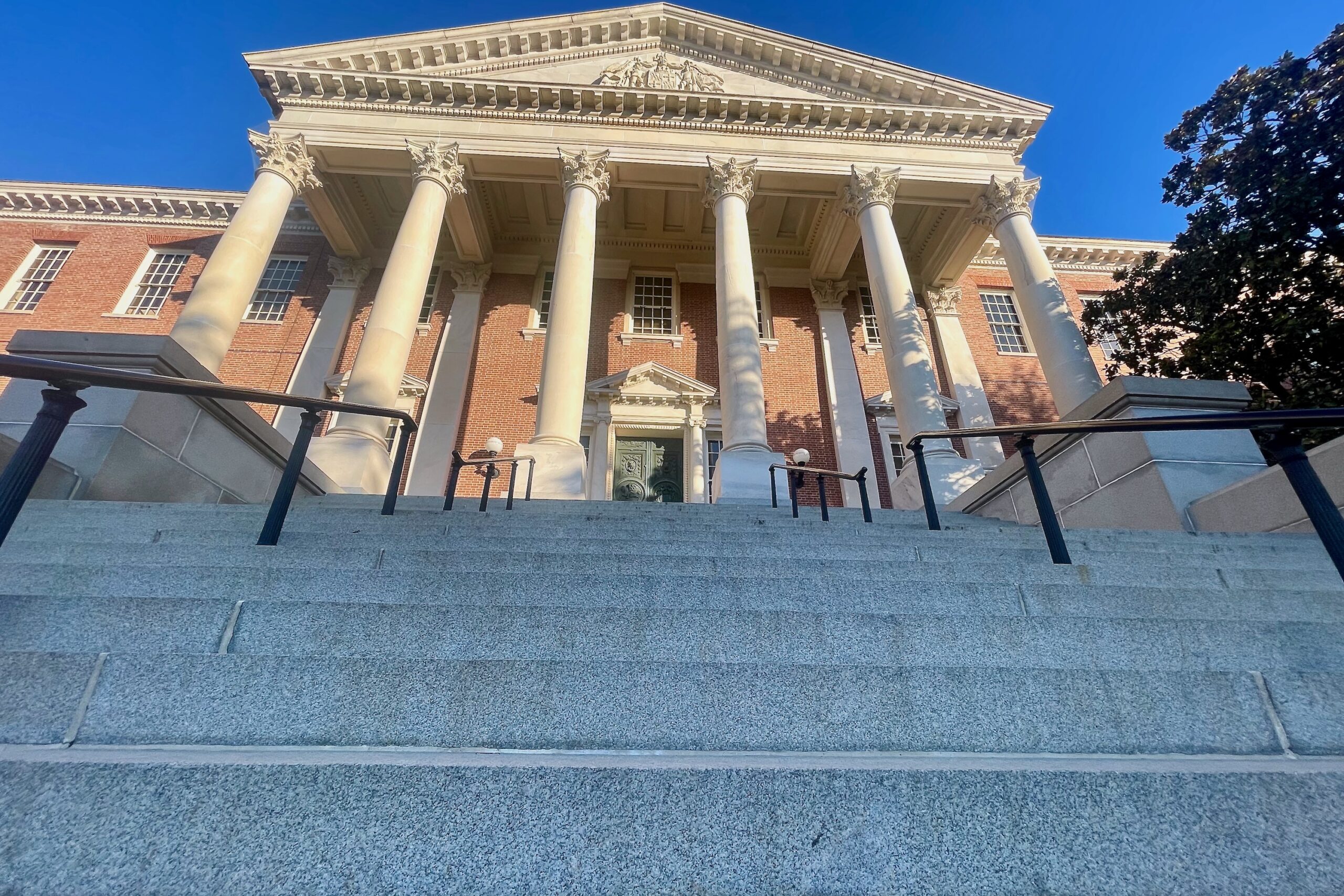Md. Corruption Under Scrutiny — From Academics This Time, Not the Feds

Maryland is one of the more corrupt states in the nation, according to a survey of journalists who cover statehouses across the country.
The General Assembly pulled in the worst score possible, a 5 (“extremely common”) on the Corruption in America survey’s scale of 1-5. The executive branch wasn’t far behind, rating a 4 (“very common”).
Before going any further, it needs to be clarified that the Institute for Corruption Studies, located at Illinois State University, issues six ratings for each state — two for the executive branch, two for the legislative and two for the judicial.
In each case, the researchers distinguish between “illegal corruption” and “legal corruption.” The researchers behind the work define illegal corruption as “the private gains in the form of cash or gifts by a government official, in exchange for providing specific benefits to private individuals or groups.”
Your basic politician-in-handcuffs type of thing.
They define legal corruption as “the political gains in the form of campaign contributions or endorsements by a government official, in exchange for providing specific benefits to private individuals or groups, be it by explicit or implicit understanding.”
Your basic you-scratch-my-back-I’ll-scratch-yours deal-making that everyone assumes is pretty much an everyday occurrence.
The numbers cited above are Maryland’s legal corruption scores.
The state’s judiciary rated a 2 (“slightly common”). As for illegal corruption, Maryland’s legislature rated a 3 (“moderately common”), the executive branch was deemed to be a 2 and the judiciary rated the highest score possible, a 1 (“not at all common”). When the data are aggregated and compared with other states, Maryland’s political climate ranks among the 14 worst in the nation, according to a chart on the institute’s website.

Prof. Oguzhan Dincer
Oguzhan Dincer, associate professor of economics at Illinois State and the director of the Institute for Corruption Studies, said he relies on journalists’ impressions because they are close to the action.
“Political reporters and investigative reporters, you guys are the watchdogs. You guys are dealing with the politicians and the state politics on a 24/7 basis,” he said in an interview this week. “Instead of asking people on the street, [we decided] why don’t we get a more informed opinion?”
He conceded there are “weakness” to this approach.
“Reporters are human beings, too.”
Dincer said he reaches out to about 1,000 journalists a year, typically receiving responses from approximately 270. Often, he finds, journalists are hesitant to click on a link and enter their impressions.
“A lot of reporters don’t want to respond at all,” he acknowledged. “It’s kind of a touchy subject. I understand these are the people you’re interviewing every day.”
The U.S. Department of Justice has been publishing corruption-related convictions by state since 1976, one of the reforms spawned by Watergate.
“That data has a lot of problems,” Dincer said.
Chief among them: “It only covers convictions, not plea bargains.”
Maryland is no stranger to political corruption.
Former state Sen. Nathaniel T. Oaks (D-Baltimore City) was sentenced in July to 3½ years in federal prison after pleading guilty to corruption charges.
Former Del. William A. Campos (D-Prince George’s) was sentenced to 4 1/2 years in prison in May, in a bribery case that prosecutors said involved “the use of taxpayer money as if it were a literal slush fund.”
Former Del. Michael L. Vaughn (D-Prince George’s) was convicted this year of conspiracy and bribery after accepting cash in exchange for votes to expand liquor sales. The cash-strapped lawmaker argued, unsuccessfully, that the bundles of cash he received were mere donations from grateful constituents.
In addition, two relatively recent Maryland governors landed in big-time hot water.
Former Vice President Spiro Agnew (R) pled no contest to a single federal count of tax evasion for failing to report income that he received in 1967, during his tenure as governor. He resigned and was fined $10,000 and sentenced to three years of unsupervised probation. Prosecutors suggested he had been taking bribes from highway contractors from the time he was Baltimore County executive straight through to his years as vice president.
Former Gov. Marvin Mandel (D) was found guilty on 17 counts of mail fraud and two counts of racketeering for accepting gifts and bribes from his co-defendants to influence legislation that helped them get extra racing dates from the state for Marlboro Racetrack in Prince George’s County.
Two decades later, a federal judge overturned the conviction and the state Court of Appeals reinstated his law license. Even lobbyists have found themselves in legal trouble.
Two of the state capital’s most high-profile and best-paid lobbyists, Bruce C. Bereano and Gerard Evans, both did time, only to resurrect their careers after their release from prison.
The data that Dincer and his associate, Colgate University Professor of Political Science Michael Johnson, release this fall will be their fifth set. They plan to issue a report on the conclusions they’ve drawn since beginning their work at Harvard in 2014. The professors hope the ratings will serve as a wake-up call to the electorate.
“The easiest way to get rid of a corrupt politician is to vote ‘em out, because convicting is very difficult,” Dincer said. “Why is Illinois more corrupt than Minnesota or Iowa? We should ask ourselves this question instead of getting used to it. People in Illinois, everybody is kind of used to corruption here. It’s like a lifestyle. The same thing in Louisiana. The same thing in New Jersey.”
“We should do something about it,” he said.
Like many people, Dincer laments the cutbacks that have hit U.S. newsrooms.
“One of the most frequent comments I get from the reporters is — yeah, we’re covering the [statehouse] but they’re getting away with murder at the county and city level, and nobody’s covering them.”
Even when there are reporters on the beat, it’s not always enough to keep elected leaders honest.
“When I first conducted the survey, I got ‘thank you’ emails from reporters in [one state capital] saying, ‘this state is so messed up and nobody knows about it!’”
He declined to name the state, but he said it’s not Maryland. The next round of rankings will be published this fall.
“I want to do it before the November elections,” he said.




 Creative Commons Attribution
Creative Commons Attribution